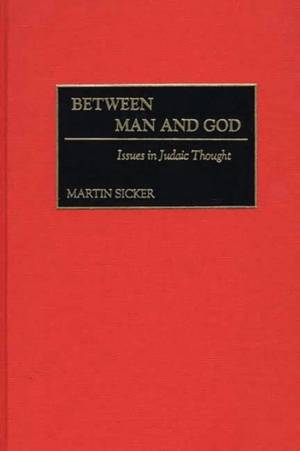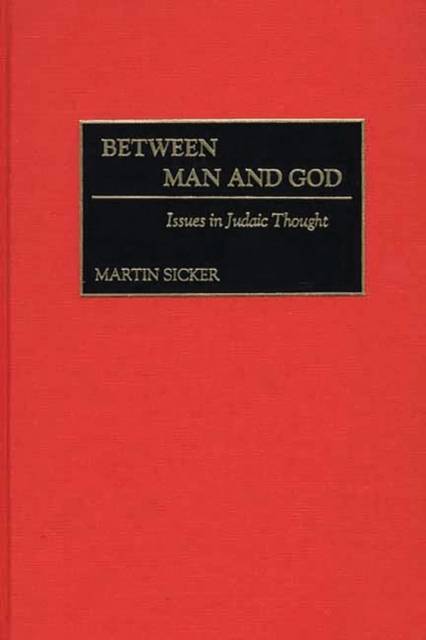
- Retrait gratuit dans votre magasin Club
- 7.000.000 titres dans notre catalogue
- Payer en toute sécurité
- Toujours un magasin près de chez vous
- Retrait gratuit dans votre magasin Club
- 7.000.0000 titres dans notre catalogue
- Payer en toute sécurité
- Toujours un magasin près de chez vous
Description
Sicker presents a personal attempt to come to grips with the awesome question, Where was God at Auschwitz? and with it some of the related central issues of Jewish thought and belief. There is a tendency among many writers of contemporary work of theology to argue that the very fact of the Holocaust invalidates traditional Jewish theory and that its long-held ideas about God must therefore be revised radically. However, Jewish thinkers have long asked the equivalent of this troubling question, albeit in reference to other places and times in Israel's history and have offered possible answers, just as we do today. The big difference between then and now is not the enormity of the Holocaust, but the readiness of earlier thinkers to search for meaning without almost cavalierly discarding traditionally cherished ideas and beliefs.
The author argues that modern advocates of radical theological revision actually have little to add to our understanding of the ways of God and even less to a meaningful Judaic perspective on the universe and the relationship between man and God. A second concern is the contemporary argument that because there is no universally accepted theology of Judaism, one is not bound by any particular conception of God, whether of biblical or rabbinic origin. Jewish theology has thus come to be viewed essentially as an equal opportunity field of intellectual endeavor, an approach Sicker considers fundamentally and fatally flawed. Traditional non-dogmatic thought does not require radical revision. What is required is a sympathetic understanding of the theological assumptions and ideas of the past coupled with a sincere and respectful attempt to reformulate them in terms more attuned to the modern temper.Spécifications
Parties prenantes
- Auteur(s) :
- Editeur:
Contenu
- Nombre de pages :
- 280
- Langue:
- Anglais
- Collection :
Caractéristiques
- EAN:
- 9780313319044
- Date de parution :
- 30-06-01
- Format:
- Livre relié
- Format numérique:
- Genaaid
- Dimensions :
- 158 mm x 248 mm
- Poids :
- 553 g

Les avis
Nous publions uniquement les avis qui respectent les conditions requises. Consultez nos conditions pour les avis.






